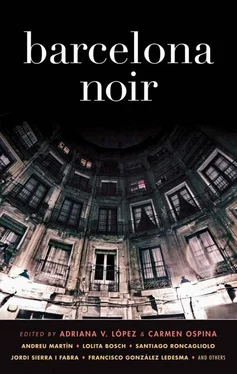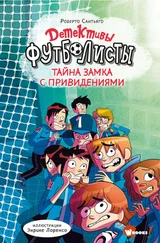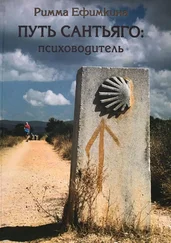Сантьяго Ронкальоло - Barcelona Noir
Здесь есть возможность читать онлайн «Сантьяго Ронкальоло - Barcelona Noir» весь текст электронной книги совершенно бесплатно (целиком полную версию без сокращений). В некоторых случаях можно слушать аудио, скачать через торрент в формате fb2 и присутствует краткое содержание. Город: New York, Год выпуска: 2011, ISBN: 2011, Издательство: Akashic Books, Жанр: Детектив, на английском языке. Описание произведения, (предисловие) а так же отзывы посетителей доступны на портале библиотеки ЛибКат.
- Название:Barcelona Noir
- Автор:
- Издательство:Akashic Books
- Жанр:
- Год:2011
- Город:New York
- ISBN:978-1-936070-95-4
- Рейтинг книги:5 / 5. Голосов: 1
-
Избранное:Добавить в избранное
- Отзывы:
-
Ваша оценка:
- 100
- 1
- 2
- 3
- 4
- 5
Barcelona Noir: краткое содержание, описание и аннотация
Предлагаем к чтению аннотацию, описание, краткое содержание или предисловие (зависит от того, что написал сам автор книги «Barcelona Noir»). Если вы не нашли необходимую информацию о книге — напишите в комментариях, мы постараемся отыскать её.
Barcelona Noir — читать онлайн бесплатно полную книгу (весь текст) целиком
Ниже представлен текст книги, разбитый по страницам. Система сохранения места последней прочитанной страницы, позволяет с удобством читать онлайн бесплатно книгу «Barcelona Noir», без необходимости каждый раз заново искать на чём Вы остановились. Поставьте закладку, и сможете в любой момент перейти на страницу, на которой закончили чтение.
Интервал:
Закладка:
When I came back, pissed at anybody who cuts coke with plaster because it burns your nose, the old singer was looking at three of his fingers as if they belonged to someone else; the drunken gal pal continued in her elegant catatonia, and the other was whispering who-knows-what into Delgado’s ear while he just smiled.
When I tried to give the coke back to Cavalcanti, he showed me his fingers and his generosity. “You can keep it,” he said. “I have more. I’m getting old, my friend. Three decades. Do you realize what that means? It makes me want to die...”
“Not tonight, Cavalcanti. I’m not in the mood for a wake.”
Cavalcanti’s laugh was purely operatic. He dried a tear and, with the effects of his last whiskey in plain view, made his way to the restroom.
It was late. I know this because after a while I started to see everything as if it were underwater, through a submarine porthole. At that hour, exhausted and sleepy, I knew — and that’s why I would never try it — that if I stretched my hand to touch somebody, my fingers would just bump up against the porthole.
Cavalcanti returned rejuvenated, his nostrils smudged with white powder.
“You’re right,” he said emphatically. “It was the Gulf War.”
“What?”
“Delgado was decorated in the Gulf War.”
“I don’t believe you, it doesn’t make sense. El Delgado isn’t even American. What the fuck was he doing in the Gulf?”
He didn’t respond, just drank his shot of whiskey and raised various fingers to order another round for everyone.
“Hey, buddy... big guy... I’m talking to you, deaf dude... show your arms to this piece-of-shit Uruguayan who doesn’t believe me.”
El Delgado hesitated before grasping what he was being asked, then finally rolled up his sleeve and stretched his arms out, both hands on the table. They were full of scars too small to be smallpox.
“They used needles, wooden splinters, and who knows what other shit,” Cavalcanti explained. “The Turks tortured him.”
Delgado stayed in the same position for a long minute, raising his little blue eyes at me as if he was waiting for something — maybe congratulations, or a word of support — until he eventually rolled down his sleeves and took cover again behind his smile.
I didn’t say anything because at that moment I saw Cavalcanti making faces like he was at death’s door and I thought perhaps this was the big one and that it had all come to pass thanks to his dedication to cocaine. But I was wrong. Delgado then widened his smile and took bites at the air as if he were a shark in a Disney cartoon. He had false teeth, and the upper dentures hit the bottom ones like castanets, revealing bright blue gums smeared with spit.
“They kicked his teeth out. What do you think of that?”
I couldn’t tell him what I thought because, just then, the night’s drinks and tobacco turned my stomach and a cold nausea indicated I had to leave unless I wanted to roll around on the ground like a poisoned dog.
I left Clavié with the shakes. The sun was shining outside, promising to cook us all.
A few days later, Paty, my sporadic lover when she’s got nothing better going on, asked me to accompany her somewhere. One of those sources who can’t be revealed had told her they had some ugly info for her, and the place to confirm it was ugly too. Knowing Paty’s nature, I prepared for the worst.
The meeting was set at a “piso patera,” one of those spaces shared by workers on rotating schedules, in Poble Nou, a longtime manufacturing neighborhood whose factories were now only empty shells. As illegal immigrants from all over the world arrived, the old buildings were recycled into housing for eight or ten people per room. It was good business for a few.
Most pisos pateras aren’t mixed, and this one housed black people. It smelled just like Chester Himes would have wanted for one of his Harlem novels: a hot and swampy mix of rotting food, dirty laundry, and life at its most primal. The windows, overlooking an interior courtyard, were covered with cardboard.
It’s tasteless to say it’s hard to see a black person in the dark, but that was the problem. When we arrived, a man greeted us with a nod and a slight gesture, which provoked an African parade to file out the door; he spoke in a low, expressionless voice. It was nearly impossible to tell if he was lying.
“Ma’am,” he said, “they tried to kill one of our sisters. They raped her, they tortured her, and they choked her. They wanted to kill her but she survived. It’s a hate crime and you have to help us.”
“Can I speak with the girl?” asked Paty.
The man took his time to consider this. I lit a cigarette so I could get a look at his face in the light of the flame. He was over thirty and he stared at us with cold, disdainful eyes. Sweat made his skin shiny.
“Maybe you’ll get her to talk. She hasn’t talked to anyone.”
He opened another door inside the apartment. I managed to see a small shadow on one of the mattresses on the floor before my friend went in and closed the door behind her.
“Where did they attack her?” I asked, just to say something.
“Near Parallel, in the plaza with the three chimneys.”
“Those streets are always packed with people.”
He moved away, irritated, as if talking to me was a waste of his time, but I trudged on. My relationship with Paty had cooled recently and I needed to score a few points.
“I don’t know why but I think you know who attacked her.”
“Maybe.”
“Did you report it to the police?”
Silence followed that idiotic question. An illegal immigrant never goes to the cops.
“Why don’t you give me a clue? I promise I’ll leave you out of whatever investigation follows.”
“There’s a guy who sleeps in the back of the electric company, next to the plaza with the three chimneys. Do you know the place?”
“There are a few guys who sleep back there.”
“White trash,” he said venomously, and he was right: there were no blacks among the homeless who hung out there. “It was one of them. The one who seems German. The big one. The one who sleeps in a camouflage sleeping bag.”
“His name?”
“Ask for El Delgado. I’m not saying any more.”
He kept his word, and I shut my trap. I lit another cigarette because in that darkness the red tip was something to hold on to, and I drowned myself in the stink of crocodiles and resentment. I kept to myself the fact that I might know the Delgado he was talking about. I kept it to myself because Cavalcanti’s friend, the decorated hero from whatever war, might have simply provoked this black man’s paranoia. He had all the key elements to do that: he was an animal with a crazy look, and white too. I would see what I could find out.
Then Paty stepped out of the room and, after a very brief exchange of promises and phone numbers, we went back out to the street.
She was walking like she wanted to break a speed record.
“The black guy says they attacked her near the three chimneys, around Parallel. That’s still Montjuic, isn’t it?” I asked.
“Shit! Shit! Shit!”
“What? What did you find out?”
“That guy’s a fucking liar!”
“Why would he lie?”
“Because he’s covering his own ass! Because he’s a pimp!”
“Ah... the girl’s a prostitute.”
“Oh, you Argentines are so kitschy, of course you had to say prostitute .”
“First, I’m Uruguayan, and second, don’t start with me. I actually got him talking and I think I might have something.”
She looked at me like she wanted to kill me, and then told me the story as if speaking to someone mentally challenged.
The girl had been attacked by two men because she’d gone into Russian territory, just outside the Fútbol Club Barcelona Stadium; they’d grabbed her and thrown her in a car. It had been easy because the girl didn’t weigh more than a hundred and ten pounds and couldn’t put up much of a fight.
Читать дальшеИнтервал:
Закладка:
Похожие книги на «Barcelona Noir»
Представляем Вашему вниманию похожие книги на «Barcelona Noir» списком для выбора. Мы отобрали схожую по названию и смыслу литературу в надежде предоставить читателям больше вариантов отыскать новые, интересные, ещё непрочитанные произведения.
Обсуждение, отзывы о книге «Barcelona Noir» и просто собственные мнения читателей. Оставьте ваши комментарии, напишите, что Вы думаете о произведении, его смысле или главных героях. Укажите что конкретно понравилось, а что нет, и почему Вы так считаете.












